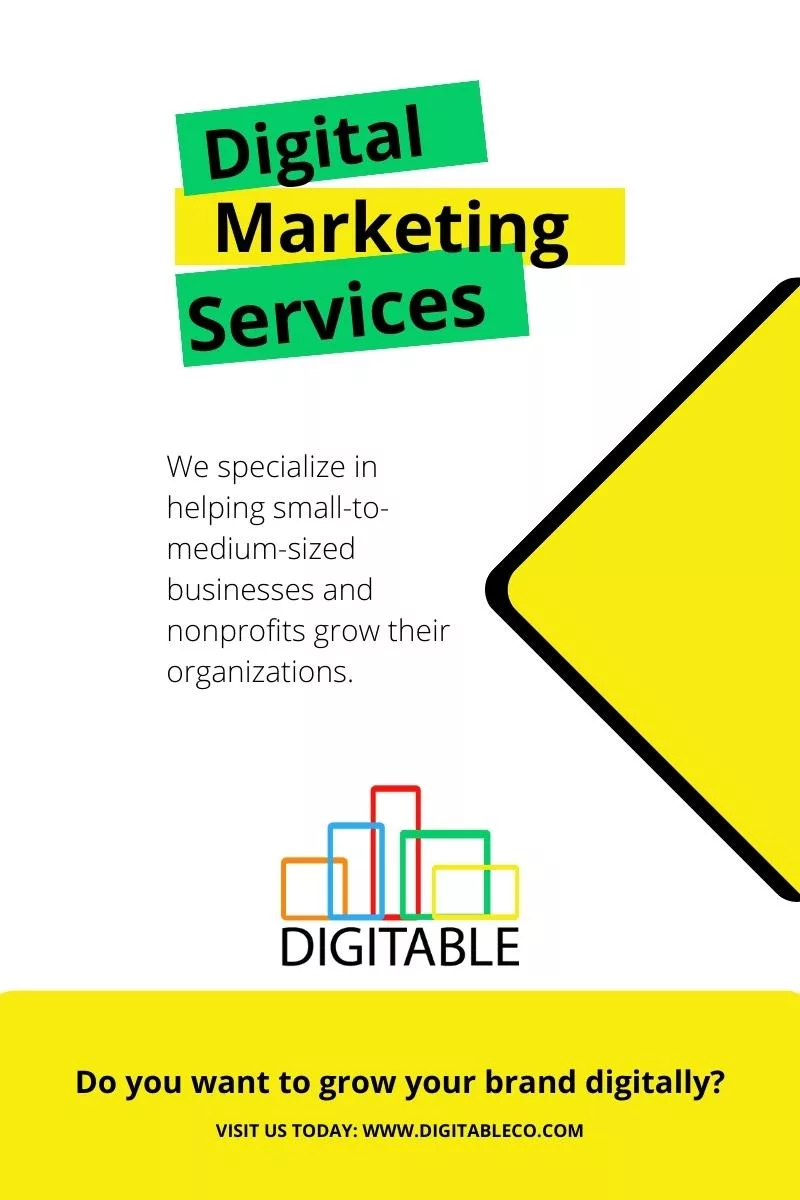Social media for ecommerce is one of the most important aspects of any online business strategy. With platforms like Facebook, Twitter, Instagram, Pinterest, and more, eCommerce brands have the potential to reach a large audience, establish relationships with their customers and promote their products and services. In this blog post, we’ll look at the current trends and opportunities in social media for eCommerce brands. We’ll explore the most effective ways to use these platforms to build relationships, engage with customers and grow their business.
The Rise of Social Commerce
In recent years, social media has become more than just a platform for socializing and connecting with friends. It has evolved into a marketplace for eCommerce brands to showcase their products and services. This is the rise of social commerce.
Best of all, social commerce is not just for large eCommerce businesses. Even small companies can benefit from the vast potential of social commerce by utilizing social media platforms such as Facebook and Instagram to reach their target audiences and drive sales.
Social commerce has made it easier for consumers to shop online without leaving the social media app. For instance, Facebook Shops allows businesses to create a storefront within the app and enable direct purchases without redirecting customers to another website. This convenience is also enhanced by the ability to checkout within the app.
The success of social commerce is evident in the examples set by brands such as Adidas, which has reportedly seen a 40% increase in online sales from their social media platforms. The ease of access to product information and purchase options offered by social commerce is a big reason for its popularity.
As eCommerce brands continue to embrace social commerce, the integration of shopping within social media platforms is likely to become more common. With the increasing demand for seamless and convenient online shopping experiences, social commerce is set to be the future of eCommerce.
The Power of Influencer Marketing
In today’s digital age, one of the best ways for eCommerce brands to reach their target audience is through influencer marketing. Influencers have become a trusted source of information and product recommendations for their followers, and partnering with the right influencers can significantly impact brand awareness and sales.
When selecting influencers to work with, consider the relevancy and authenticity of their content. Choose influencers who align with your brand values and target demographic, as this will help ensure that their audience will resonate with your products or services.
Influencer marketing in eCommerce is an often-used practice, and one of the best examples is Glossier. The beauty brand strategically partners with influencers who embody the Glossier aesthetic and values. These influencers then create content featuring Glossier products, which drives traffic and sales for the brand.

Another great example is Daniel Wellington, the watch brand that exploded in popularity thanks to its influencer marketing strategy. Gifting watches to a wide range of influencers generated a buzz and created interest in their products.
Video Content and Live Streaming
In today’s digital age, video content, and live streaming have become incredibly popular among eCommerce brands. With platforms like YouTube, Facebook Live, and Instagram Live gaining immense traction, brands have found a new way to engage with their audience and drive sales.
Video content allows eCommerce brands to showcase their products dynamically and engagingly. From product demos to behind-the-scenes footage, videos enable brands to tell their story and connect with their audience. Studies have shown that videos can increase conversion rates by up to 80%.
Live streaming takes video content to the next level by providing a real-time and interactive experience. It allows brands to host live product launches, Q&A sessions, and influencer collaborations. This builds excitement around the brand and enables customers to ask questions and receive immediate feedback.
Live streaming can also help eCommerce brands leverage the power of social proof. By showcasing real-time reviews and testimonials, brands can build trust and credibility among their audience, ultimately boosting sales.
User-generated Content and Reviews
ECommerce brands’ most influential social media trend is user-generated content and reviews. With the rise of social media influencers, it’s easier than ever to get user-generated content from fans and customers. By featuring these photos, videos, and posts on your social media channels – you can build a stronger connection with your audience and authentically showcase your products.
But it’s not just about showing off your customers’ photos and videos. It’s also about encouraging them to leave reviews on your website and social media channels. Research shows that 92% of customers read online reviews before making a purchase, so having positive reviews can make a big difference in your sales.
One effective way to encourage customers to leave reviews is to offer incentives, such as discounts or free products. You can also create a social media campaign encouraging users to share their experiences with your brand. The key is to make it easy and fun for customers to share their feedback.
Augmented Reality for Enhanced Shopping Experiences
Augmented reality (AR) has been profoundly altering the way eCommerce brands engage with their customers. This innovative technology enables shoppers to virtually try on products, visualize how items will look in their homes, or even explore a virtual store from the comfort of their homes.
One advantage of AR is the enhanced shopping experience it provides. By allowing customers to see products in a virtual environment, they can sense how items will fit, look, or function before purchasing. This boosts customer confidence and reduces the likelihood of returns, ultimately improving customer satisfaction.
AR also has the potential to bridge the gap between online and offline shopping. By implementing AR technology in physical stores, brands can offer immersive experiences that merge the convenience of online shopping with the sensory aspects of in-store experiences. This attracts more foot traffic but also provides an opportunity to showcase products more interactively and engagingly.
Moreover, AR has proven to increase customer engagement and drive sales. Studies have shown that brands integrating AR into their marketing strategies experience higher conversion rates and longer browsing sessions. By incorporating AR in social media campaigns, eCommerce brands can capture the attention of their target audience and inspire them to take action.
The Role of Chatbots and AI in Customer Service
In the fast-paced world of eCommerce, providing excellent customer service is essential for success. This is where chatbots and AI come into play. Chatbots are virtual assistants that can answer customer inquiries and provide support through instant messaging, while AI uses algorithms to analyze data and provide personalized recommendations. Together, they create a seamless and efficient customer service experience.
One of the main benefits of using chatbots and AI in customer service is their ability to provide 24/7 support. Unlike human representatives, chatbots are always available, ensuring that customers can receive assistance any time, day or night. Additionally, they can handle multiple inquiries simultaneously, eliminating long wait times for customers.
Shoppable Posts and Social Media Ads
One of the most significant trends in social media for eCommerce brands is the rise of shoppable posts and social media ads. This new feature allows brands to tag products directly, making it easier than ever for users to purchase without leaving the platform.
This trend is crucial as it helps bridge the gap between social media browsing and online shopping. With the increasing popularity of social media as a shopping destination, brands can now directly monetize their social media presence and drive sales more efficiently. Moreover, social media ads that include shoppable tags are proven to have higher engagement and conversion rates, making them a valuable tool for eCommerce brands to promote their products effectively.
Social Listening and Brand Monitoring
Social listening and brand monitoring are crucial aspects of any social media strategy for eCommerce brands. It involves actively monitoring conversations and mentions of your brand on social media channels to gain insights into how your audience feels about your products or services. Keeping an eye on your brand’s social media channels can help you gain valuable feedback, including suggestions for product improvements, customer service inquiries, and testimonials.
One of the benefits of social listening is that it helps you to track your brand’s online reputation. You can identify potential problems or negative feedback early and address them promptly before they spiral out of control.
Integrating Social Media with CRM Systems
Today, social media has become an integral part of our lives. Whether sharing personal moments or connecting with brands, social media platforms have created immense opportunities for eCommerce brands. One of the current trends in the industry is integrating social media with customer relationship management (CRM) systems.
By combining social media with CRM systems, eCommerce brands can track customer interactions, analyze data, and improve their marketing strategies. With social media, brands can easily engage with their target audience, respond to customer queries, and address concerns promptly. This not only enhances the customer experience but also builds trust and loyalty.
Integrating social media with CRM systems allows eCommerce brands to gain valuable insights into customer preferences, behavior, and purchasing patterns. By leveraging this data, brands can personalize their marketing campaigns, deliver targeted advertisements, and recommend products or services that align with individual customer needs.
Through metrics like reach, engagement, and conversion rates, eCommerce brands can assess the effectiveness of their social media campaigns, identify areas for improvement, and optimize their marketing strategies.

Contact Us Today
Are you an eCommerce brand looking to take advantage of the current trends and opportunities in social media? Look no further! Our team of experts is here to help you optimize your social media strategy and make the most of these exciting times.
Don’t miss out on the chance to capitalize on the current social media opportunities for eCommerce brands. Contact us today to schedule a consultation, and let us guide you toward success in the ever-expanding world of social media. Together, we can elevate your eCommerce strategy to new heights and drive impressive results for your brand.
